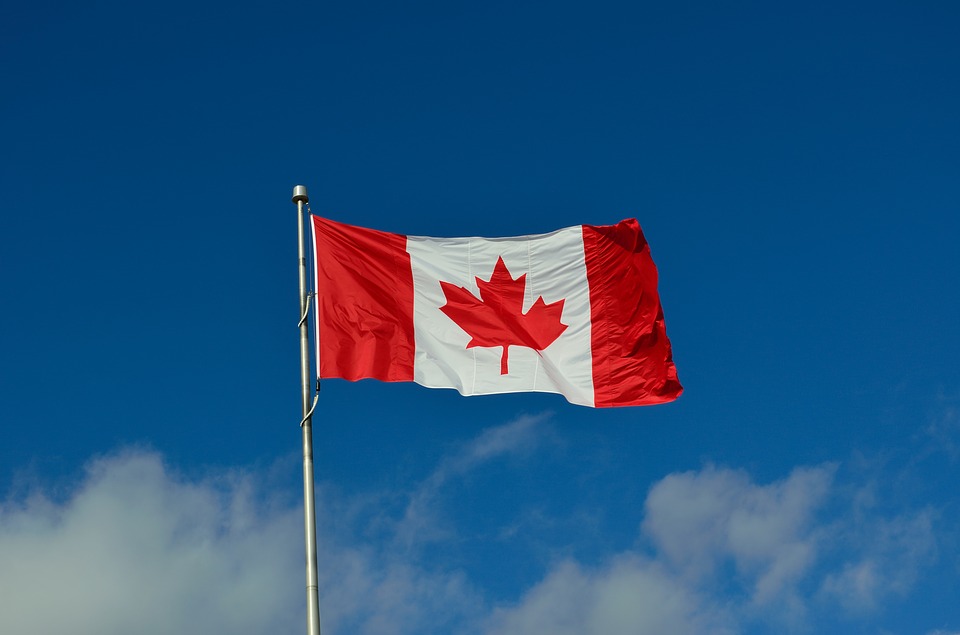Amendments to Spousal Sponsorship Protects Vulnerable Individuals
Upcoming changes no longer require sponsored migrants to remain in a relationship with their partner to retain status
Last month, the government of Canada announced that in early 2017, it will eliminate the requirement of conditional permanent residence for spousal sponsorship applications, making it easier for vulnerable individuals to leave abusive relationships.
The conditional permanent residence rule presently requires migrants who were sponsored to Canada by their spouse or partner and who do not have any children with their sponsor to remain in the relationship for at least two years or otherwise risk losing their permanent residence status. The rule came into effect in 2012 with the aim of combating marriage fraud.
Under this rule, sponsored spouses could only be exempted from the requirement if their sponsor has died or if they could prove that they are in an abusive relationship. In the past three years, there were three hundred applications for this exemption, with the large majority of applicants being women in abusive relationships. The government had granted an exemption to 80% of the applicants, but a significant number of vulnerable individuals were undoubtedly forced to remain with their abusers just to keep their status, especially since many of them do not speak the language, do not know their legal rights, and are simply unaware that the exemption even exists.
In any case, the reliance on the exemption by women abused or neglected by their sponsors clearly shows that using conditional permanent residence to fight marriage fraud comes at a high cost of trapping newcomers in abusive relationships. Unless they can prove abuse or neglect, victims of domestic violence are effectively forced to stay with their abusers just to keep their status in Canada.
Moreover, the current requirement forces individuals to stay together after the breakdown of their relationship, entirely ignorant of the fact that many genuine marriages, whether entered into in Canada or abroad, end before their two-year mark. The upcoming amendments are, therefore, a welcome change aimed to finally address the problems underlying conditional residence.
While combating marriage fraud is a legitimate objective, there already exist sufficient safeguards in the system to ensure the integrity of spousal sponsorship and to prevent fraudulent marriages. For example, an individual who came to Canada as a spouse must wait at least five years from the day they are granted their permanent resident status to qualify as a spousal sponsor themselves.
Additionally, sponsors are required to sign an undertaking promising to provide for their spouse’s essential needs for three years, regardless of whether or not the relationship ends before that time. As such, the conditional residence requirement is in no way essential to combating marriage fraud, since plenty of safeguards are already in place to ensure this objective.
If you have more questions about the changes, contact a Canadian immigration lawyer about the changes.
Changes to Express Entry
How Do These Changes Affect Immigration to Canada?
On 19 November 2016, changes to Canada's Express Entry immigration system were implemented. It now awards points for jobs that are LMIA-exempt and awards points to candidates who have completed post-secondary education in Canada.
Job Offers
Previously, 600 points were awarded in the Express Entry Comprehensive Ranking System for a job that was permanent and supported by a Labour Market Impact Assessment (“LMIA”). The changes brought to Express Entry on 19 November 2016 have eliminated this component.
With the change, 200 points are awarded for National Occupational Classification (“NOC”) 00 jobs with a valid job offer, and 50 points are awarded for any other NOC 0, A, and B jobs with a valid job offer. Persons on LMIA-exempt work permits are eligible to be awarded these points, including those whose work permits were issued pursuant to the North America Free Trade Agreement, a federal-provincial agreement, Mobilité Francophone, or issued as an intra-company transferee. Persons who were granted an LMIA are also eligible for these points, provided they fall in the appropriate NOC.
To qualify to receive these points, candidates must have been working in Canada for the employer named on the work permit for at least one year. Thus, the requirement that the job be of a permanent nature has been removed. Persons who have open work permits are not eligible.
Immigration, Refugee and Citizenship Canada has stated that, because the amount of points awarded for job offers has decreased, this change will allow more highly skilled candidates without a job offer to get an invitation to apply to Express Entry. These candidates have the skills and experience to support and grow our economy.
Education
Previously, points were only awarded for education overall, and no benefit was given to international students who had studied in Canada.
The changes implemented on 19 November 2016 now awards points to persons who have completed a post-secondary degree or diploma in Canada. 15 points are awarded for a one- or two-year diploma or certificate. Furthermore, 30 points are awarded for a degree, diploma or certificate of three years or longer, or for a Master’s, professional, or doctoral degree of at least one academic year.
These new changes are meant to encourage international students to stay in the country after they complete their studies and to help Canada retain skilled workers.
Application
Previously, once candidates received an invitation to apply, they had 60 days to gather all required documentation and submit their complete application for permanent residence. Now, candidates will have 90 days to do this, which provides considerably more time to prepare this lengthy application.
No Halt to Immigration in Canada
Canada Is Still Welcoming Immigrants, Regardless Of Views South Of The Border
Immigration continues to be a hot topic in politics throughout most of the Western hemisphere, especially with regards to refugees fleeing violence in the Middle East. Unfortunately, fear-mongering tactics have been used to turn people against immigrants and immigration policies, most notably in Europe and the United States. Thankfully, Canada remains open to immigration and continues to welcome refugees and immigrants while embracing the multiculturalism of our country, not turning away from it.
John McCallum, Canada’s Minister of Immigration, Refugees and Citizenship, recently stated that Canada will be inviting a greater number of students and high-tech professionals from India to support globalization, multiculturalism, and Canada’s immigrant-friendly policy.
To expand Canada’s immigration program, Canada aims to bring in more skilled workers and international students. In addition to accepting more skilled immigrants, McCallum confirmed that Canada will continue to welcome refugees.
McCallum’s statement of support for immigrants, refugees, and multiculturalism could not have come at a better time. Even though Canada's southern neighbours have chosen a very different social and political direction, Canada’s support for immigration has been made clear.
McCallum's statements were made on November 8—the day of the US presidential election. For many, the outcome of the election was disheartening and worrisome given President-elect Donald Trump's anti-immigration stance. Following Trump's election win, there was an increase in hateful acts towards women and different cultures, regardless of whether or not the targeted groups are in fact immigrants. This was not limited to the United States, either: similar events unfolded in Europe and even here in Canada.
Canada has not given in to fear-mongering or ignorant attitudes. With the federal government's position clearly stated, Canada will continue to be a leader in immigration. The future of immigration in the US is currently fraught with worry and concern, but Canada hasn’t closed its doors to others.
Hopefully, fear and hate will not blind people and prevent them from embracing the multiculturalism that makes our country whole.
Trump Win Crashes Immigration, Refugees and Citizenship Canada Website
Routes To Immigration To Canada For Our American Neighbours
The reaction to Donald Trump’s election win saw tremendous interest in Canadian immigration. Following the stunning results of the evening of November 8, 2016, web searches for “Canada immigration” and “Canada citizenship” were up over 4,000 percent each.
In fact, Immigration, Refugees and Citizenship Canada’s (IRCC) website saw so much traffic that it crashed around 9 P.M. EST.
For Americans looking to immigrate to Canada, there are numerous pathways. Persons with skilled work experience, which includes a wide array of professions, can attain permanent residence through the Federal Worker Stream of the express entry system. Americans who choose to work in Canada, or to study and then work, can also obtain work permits to gain Canadian skilled work experience to qualify for the Canadian Experience Class. There are also several permanent residence routes through our provinces, including for workers and graduates.
Still other options exist for investors, business owners, family members of Canadians, caregivers, and persons in situations warranting humanitarian relief.
Express entry is still the fastest way to get permanent resident status in Canada. However, an applicant must first attain a sufficient number of points to be selected to apply for permanent residence in express entry, based on the following factors:
- Age;
- Level and location of education attained;
- Relevant work experience;
- Language ability; and
- Whether the applicant has an offer of employment or has been selected for permanent residence by a province
While frustrated American citizens are looking for a way out, there is some good news on the immigration front. Canada has increased the number of immigrants allowed into the country to 300,000 for 2017. This push would mean that over half of Canada’s immigration for 2017 would be economic-based.
Regardless of the cause for immigration to Canada, working with a skilled Canadian immigration lawyer can help any atrupplicant navigate the process and give you the best shot at entering our country—as a permanent resident and, eventually, a proud citizen.
MSF Canada on the Right to Asylum
According To A Newly Released Report, Canada Is Breaking International Humanitarian Law
The new report by MSF Canada, “The Less Told Migration Story and its Humanitarian Consequences,” asks what happened to people's right to move. International law has recognized the right of people to seek asylum in other countries since the Universal Declaration of Human Rights was signed in 1948. This right was further codified in 1951 in the Refugee Convention and is part of International Humanitarian Law.
Despite the existence of a legal framework under which people can seek asylum, people who try to flee their war-torn country or leave from other persecutions still face perilous journeys as well as suffer health and psychological harm as a result of those journeys. MSF reports that the resources available to care for refugees are inadequate and, rather than meeting the challenge of caring for refugees and asylum seekers as required by international law seekers, certain European countries, Australia, the United States, and Canada are finding ways to close their borders and make it harder for people to come to their countries.
Refugees face a double-jeopardy situation. The externalization of borders has made it almost impossible for someone to reach countries through regular channels like flight. People are stopped by stringent visa requirements and “integrity officers” at airports whose job it is to fend off “unwanted migrants.” If refugees then turn to irregular channels that rely on smugglers, they not only face danger from the trip as well as from the smugglers, but also face interdiction measures in the countries they land in, such as detention and being returned to the country they fled because of the route they chose to enter that country.
Unfortunately, Canada has adopted detention as a method for dealing with refugees. MSF reports that the Canadian government has created a policy of mandatory detention for all those who are deemed to be “irregular arrivals.” Furthermore, against international law, refugees may be placed in criminal detention centres whenever there no space in the Immigration Holding Centres run by the Canadian Border Services.
Placing refugees, which the MSF says are a low-risk, non-criminal population, in criminal detention centres further harms them by putting them in an environment where they are vulnerable and which lacks adequate mental health support for those who have suffered trauma. MSF is concerned that Canada allows for indefinite detention for migrants and reminds Canada to use detention as a last step resort. MSF reports that there is still no adequate mechanism that is legal and safe for people to seek asylum in Canada. Canada should stay consistent in following humanitarian and refugee law and respect the rights of asylum seekers.





